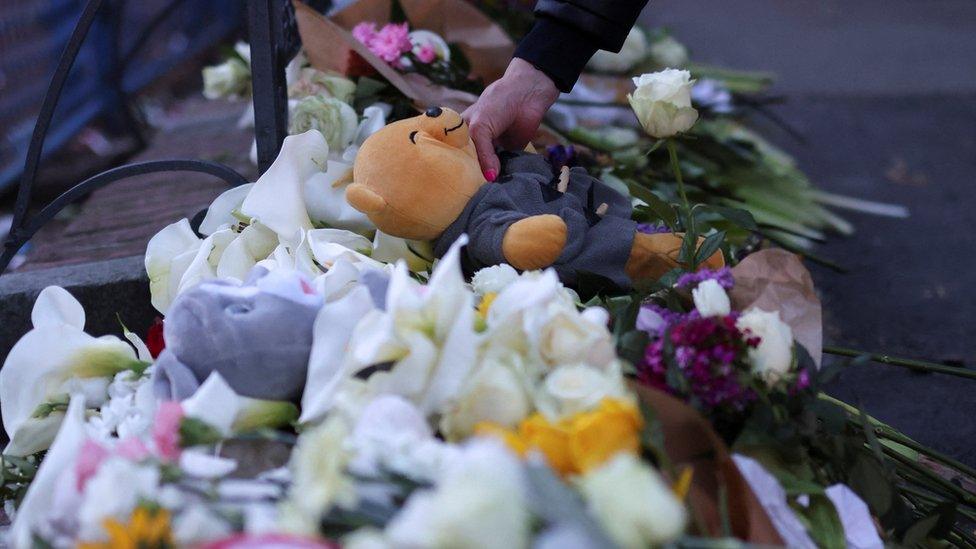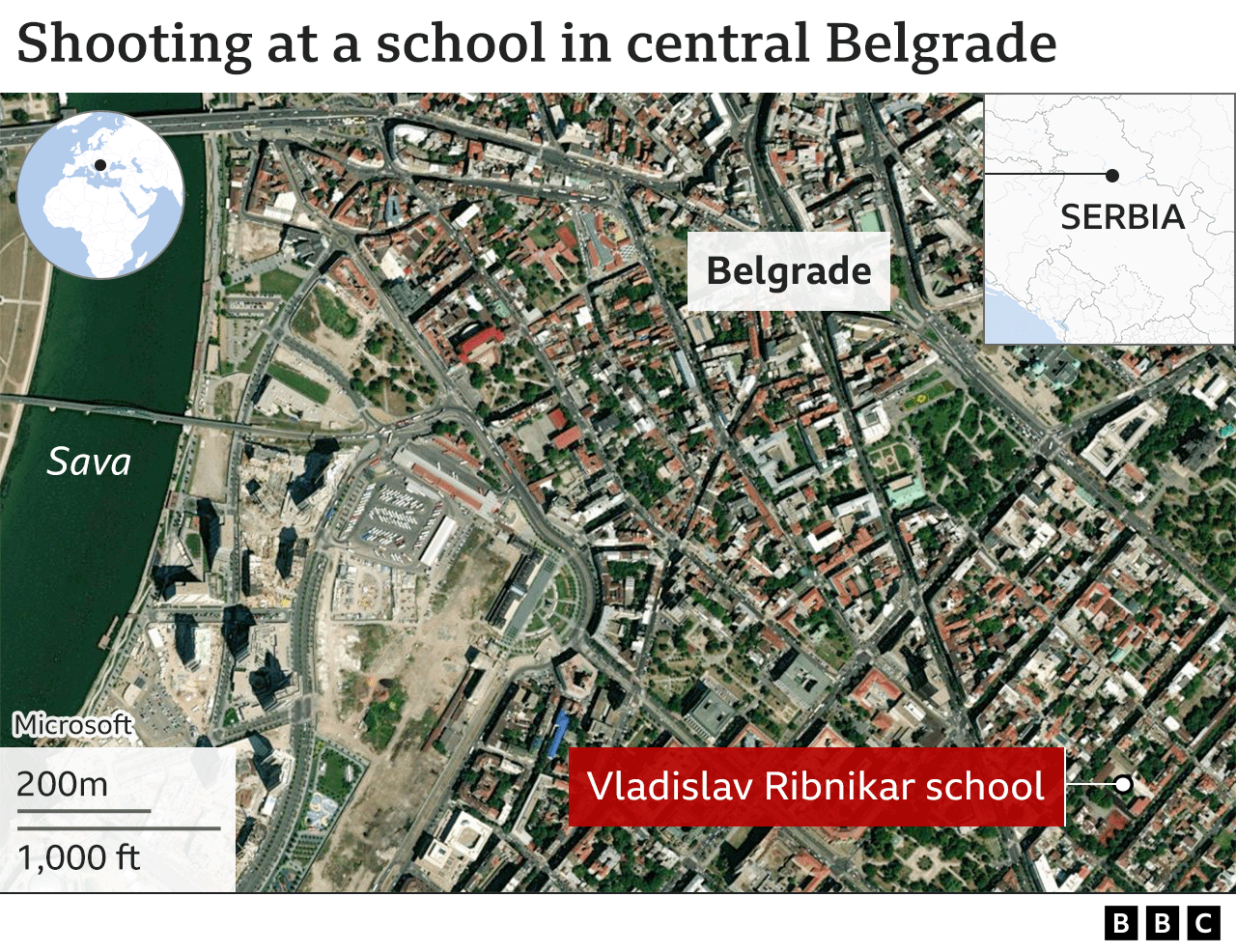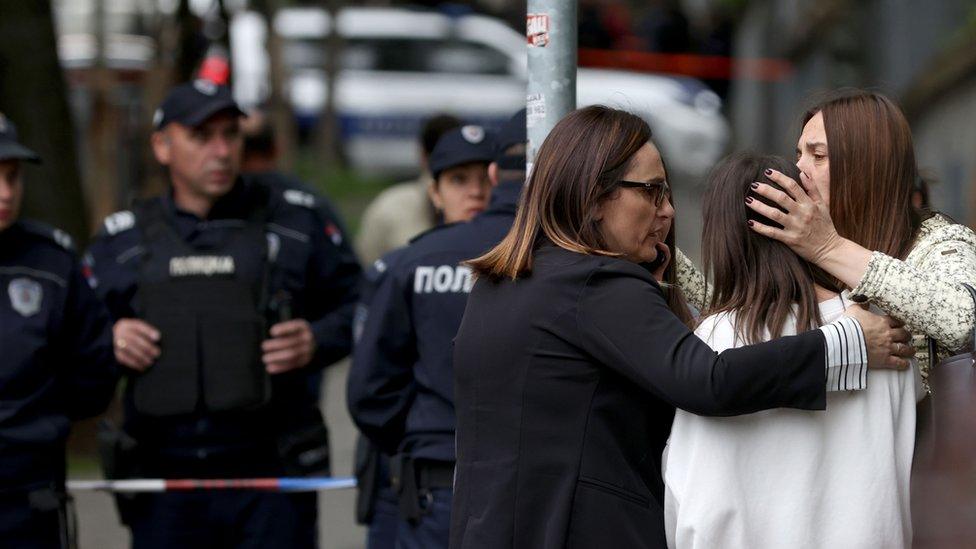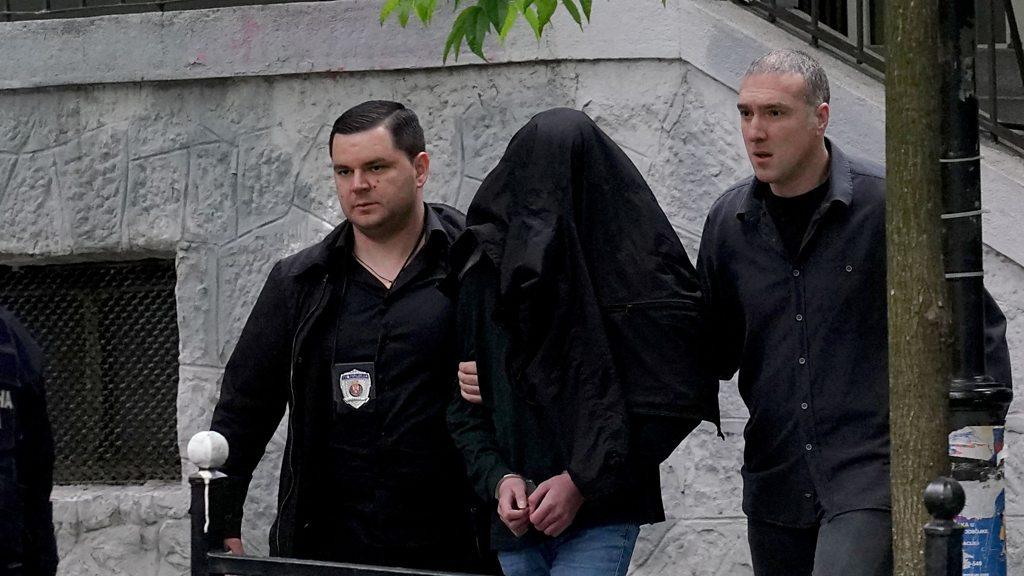Belgrade shooting: Teen made 'kill list' for Serbia school attack
- Published
Watch: Belgrade shooting suspect arrested by police
A teenager who killed eight fellow students and a security guard in a school in Serbia planned the attack for weeks and had a "kill list", according to police.
The 13-year-old was arrested following Wednesday's attack at the Vladislav Ribnikar primary school in Belgrade.
The boy's father and mother have also been arrested.
Of those killed, seven of the victims were girls at the school, but the motive for the attack is still unclear.
Another six pupils and a teacher were injured in the shooting, four more boys and two girls.
A boy who was shot in the neck and chest is said to have suffered the worst injuries, while a girl is in critical condition with a head injury.
Officers in helmets and bulletproof vests cordoned off the area around the school, located in the central Vracar neighbourhood, shortly after 08:40 (06:40 GMT).
The suspect is alleged to have used his father's guns, both of which had legal permits. He is also said to have gone to a shooting range more than once with his father before the killings.
In a televised address to the country, President Aleksandar Vucic described the attack as "the most difficult day in the modern history of our country".
He said the suspect would be sent to a psychiatric clinic. Under current Serbian law, he cannot be held criminally responsible as he is under 14.
Mr Vucic has suggested that the age of criminal liability may be lowered to 12 in the wake of the killings.
He has also proposed several other reforms, including an audit on firearms licences and a tightening of the rules around who can access shooting ranges.
Police say the suspect planned the attack a month in advance and that he had carried a "priority list" of children to target and which classrooms he would go into first.
Four of those wounded, three boys and another girl, were stable and conscious on Wednesday.
A teacher injured in the attack was also reported to have undergone surgery and the health minister said on Tuesday her life was at risk.
Most of the victims were born in 2009 - meaning they were either 13 or 14 at the time of the incident.
A national three-day mourning period starting on Friday has been announced.

Tributes have been laid for the victims of Wednesday's shooting outside the school in central Belgrade
The sounds of crying parents could be heard on the streets around the school hours after the shooting.
Milan Milosevic, the father of one of the pupils at the school, said his daughter was in the class where the gun was fired and managed to escape.
"[The boy] first shot the teacher and then he started shooting randomly," Mr Milosevic told broadcaster N1.
"I saw the security guard lying under the table. I saw two girls with blood on their shirts. They say he [the shooter] was quiet and a good pupil. He recently joined their class."
"I saw kids running out from the school, screaming. Parents came, they were in panic. Later I heard three shots," one student told the Serbian state broadcaster RTS.
Mr Vucic said the suspect had become friendly with the guard, who was described by one parent as "a man who loved kids".
Mass shootings are comparatively rare in Serbia, which has very strict gun laws, but gun ownership in the country is among the highest in Europe.
The western Balkans are awash with illegal weapons following wars and unrest in the 1990s. In 2019, it was estimated that there are 39.1 firearms per 100 people in Serbia - the third highest in the world, behind the US and Montenegro.
In the deadliest shooting since then, Ljubisa Bogdanovic killed 14 people in the central village of Velika Ivanca in 2013, and Nikola Radosavljevic killed nine and wounded five in the eastern village of Jabukovac in July 2007.

Related topics
- Published3 May 2023

- Published3 May 2023
